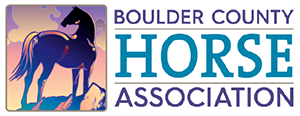By MEAD GRUVER, Associated Press
June 30, 2014
CHEYENNE, Wyo. — A horse in Johnson County has been euthanized after testing positive for an incurable and potentially deadly virus that appears only rarely in Wyoming, officials said Monday.
Five other horses were being quarantined for 60 days. So far, those horses have tested negative for equine infectious anemia but will be retested, Wyoming Livestock Board officials said.
The virus can infect horses, mules and donkeys, causing them to become weak and lethargic. Such infections happen worldwide but only isolated cases have occurred in Wyoming every two or three years, Wyoming State Veterinarian Jim Logan said.
The virus typically is transmitted by biting horse flies or deer flies. No vaccine exists.
“In the South — in other areas where it’s humid and more conducive to the vectors — it’s much more common to see it,” Logan said.
Livestock officials declined to identify the owners of the euthanized or quarantined horses.
Veterinarians initially diagnosed the disease on June 18. They conducted follow-up testing to confirm the virus before they euthanized the horse Wednesday, Logan said.
State laws require horses to be tested for diseases including equine infectious anemia before being shipped across state lines. The euthanized horse had lived in Wyoming for several years and likely was tested in anticipation of a move, Logan said.
The horse wasn’t showing signs of the disease. However, a horse can carry the virus for years without symptoms or it can become acutely or chronically infected.
Three of the quarantined horses belonged to the same owner and the other two belonged to someone else.
The quarantined horses had come within 200 yards of the infected horse. That’s about as far as a fly can carry the disease because the virus can’t persist in an insect for long, Logan said.
Horse owners can guard against equine infectious anemia with good insect control, good sanitation practices, testing horses for the virus, and using only new and clean needles and syringes on horses, officials said.
